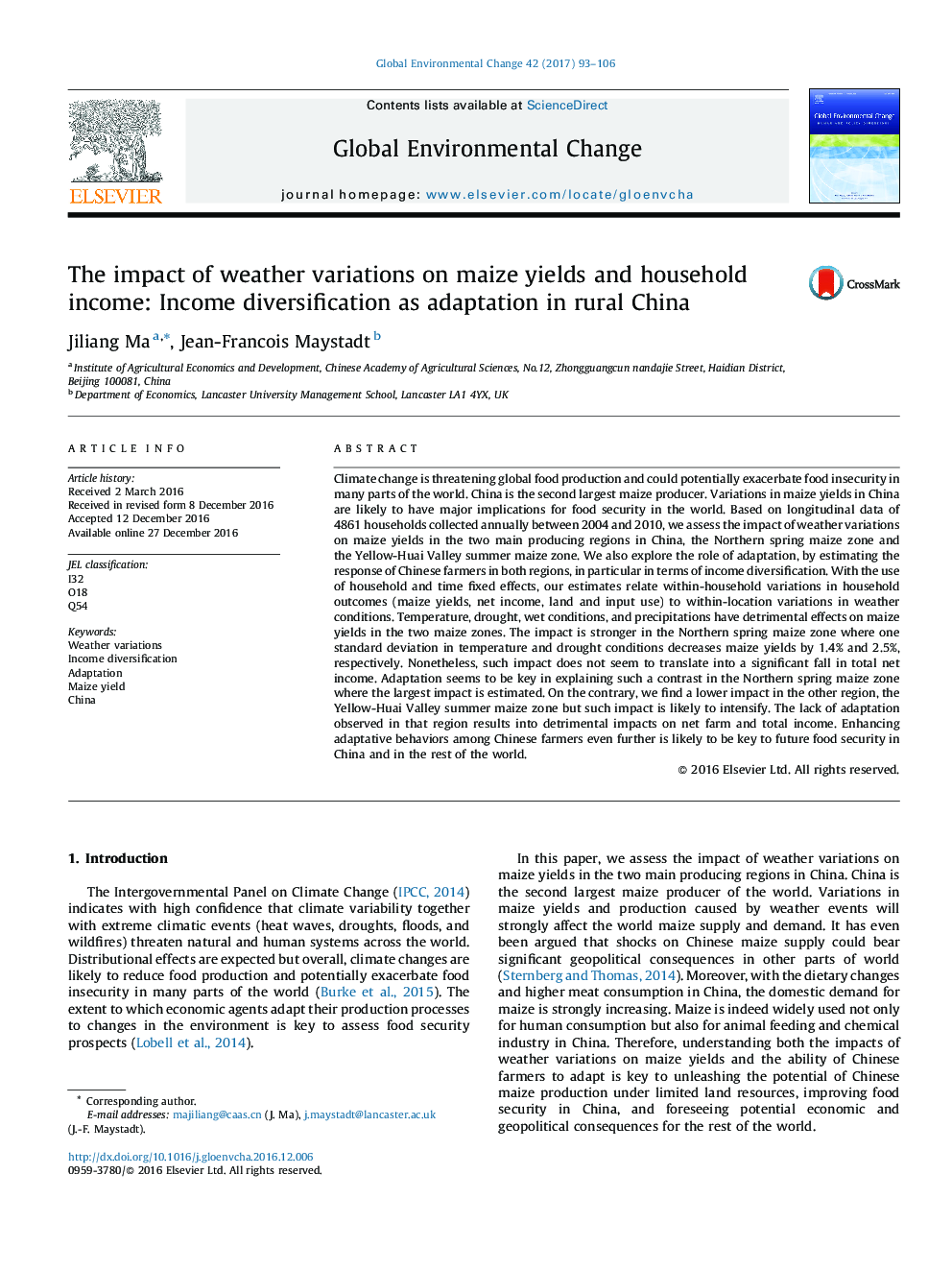| کد مقاله | کد نشریه | سال انتشار | مقاله انگلیسی | نسخه تمام متن |
|---|---|---|---|---|
| 5115981 | 1485116 | 2017 | 14 صفحه PDF | دانلود رایگان |
- Weather variations harm maize yields in the two leading maize zones in China.
- Higher impact and limited adaptation are observed in the Northern spring maize zone.
- Weather impact does not seem to translate into a significant fall in total income.
- Evidence for intensification is found in the Yellow-Huai valley summer maize zone.
Climate change is threatening global food production and could potentially exacerbate food insecurity in many parts of the world. China is the second largest maize producer. Variations in maize yields in China are likely to have major implications for food security in the world. Based on longitudinal data of 4861 households collected annually between 2004 and 2010, we assess the impact of weather variations on maize yields in the two main producing regions in China, the Northern spring maize zone and the Yellow-Huai Valley summer maize zone. We also explore the role of adaptation, by estimating the response of Chinese farmers in both regions, in particular in terms of income diversification. With the use of household and time fixed effects, our estimates relate within-household variations in household outcomes (maize yields, net income, land and input use) to within-location variations in weather conditions. Temperature, drought, wet conditions, and precipitations have detrimental effects on maize yields in the two maize zones. The impact is stronger in the Northern spring maize zone where one standard deviation in temperature and drought conditions decreases maize yields by 1.4% and 2.5%, respectively. Nonetheless, such impact does not seem to translate into a significant fall in total net income. Adaptation seems to be key in explaining such a contrast in the Northern spring maize zone where the largest impact is estimated. On the contrary, we find a lower impact in the other region, the Yellow-Huai Valley summer maize zone but such impact is likely to intensify. The lack of adaptation observed in that region results into detrimental impacts on net farm and total income. Enhancing adaptative behaviors among Chinese farmers even further is likely to be key to future food security in China and in the rest of the world.
Journal: Global Environmental Change - Volume 42, January 2017, Pages 93-106
